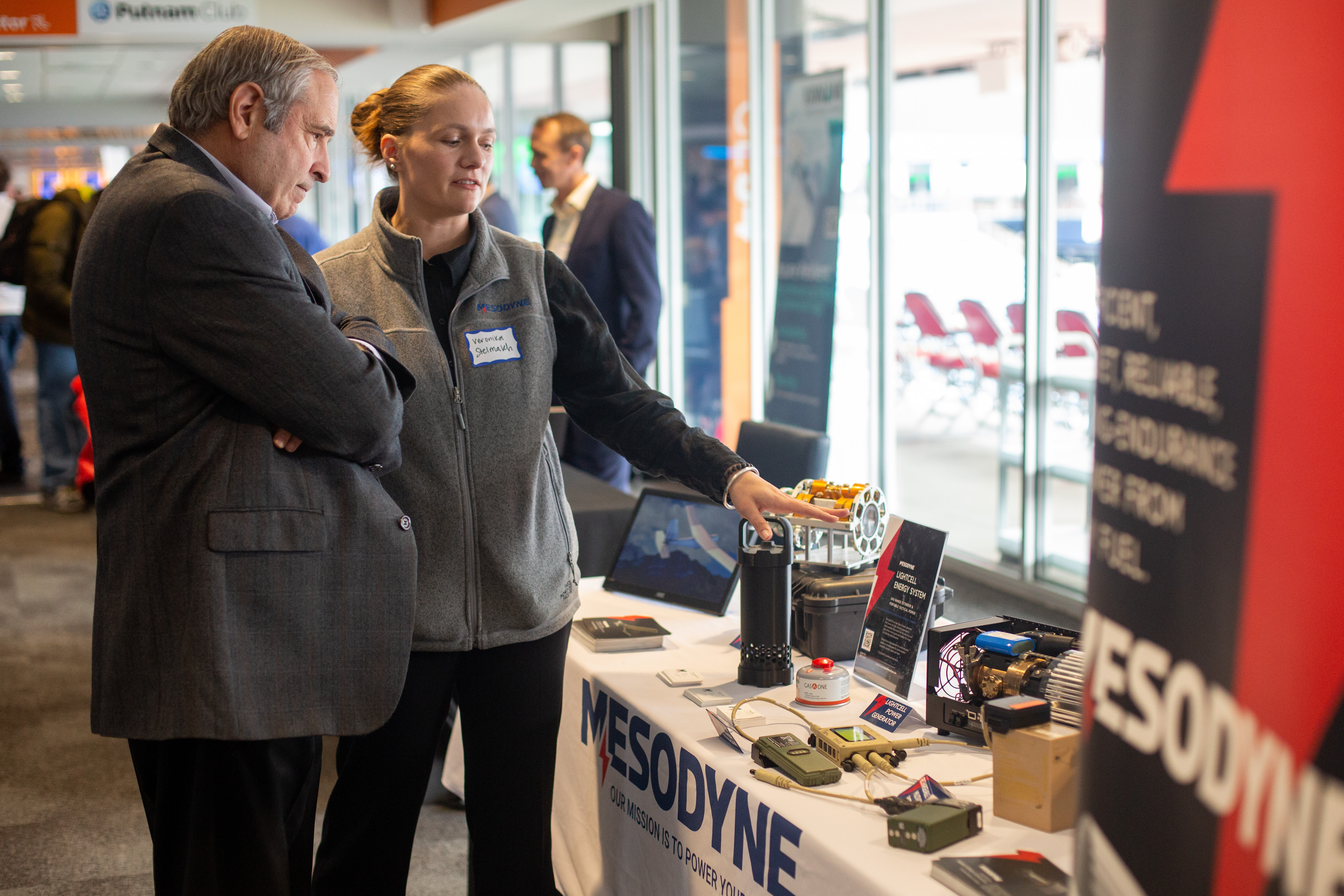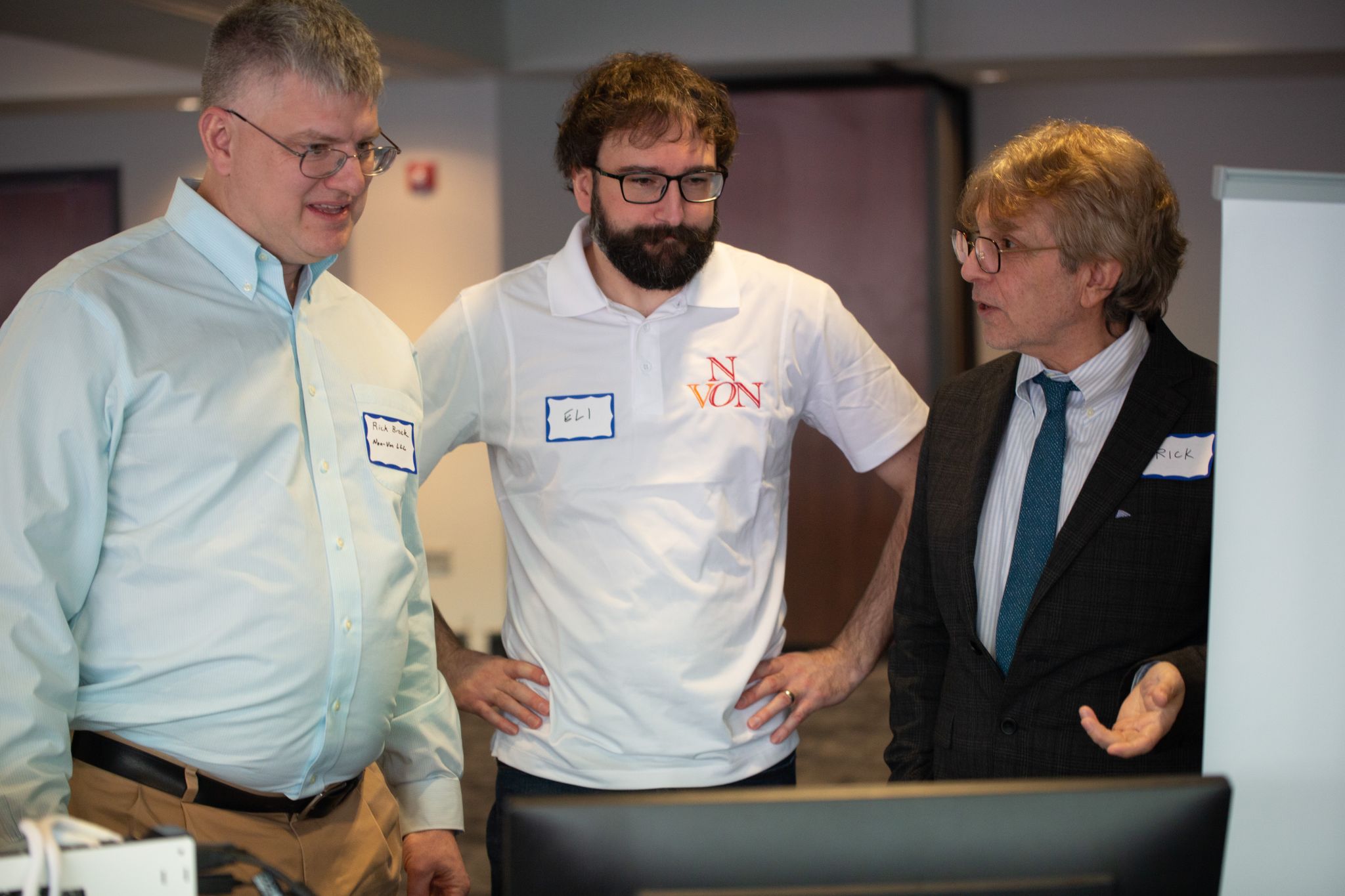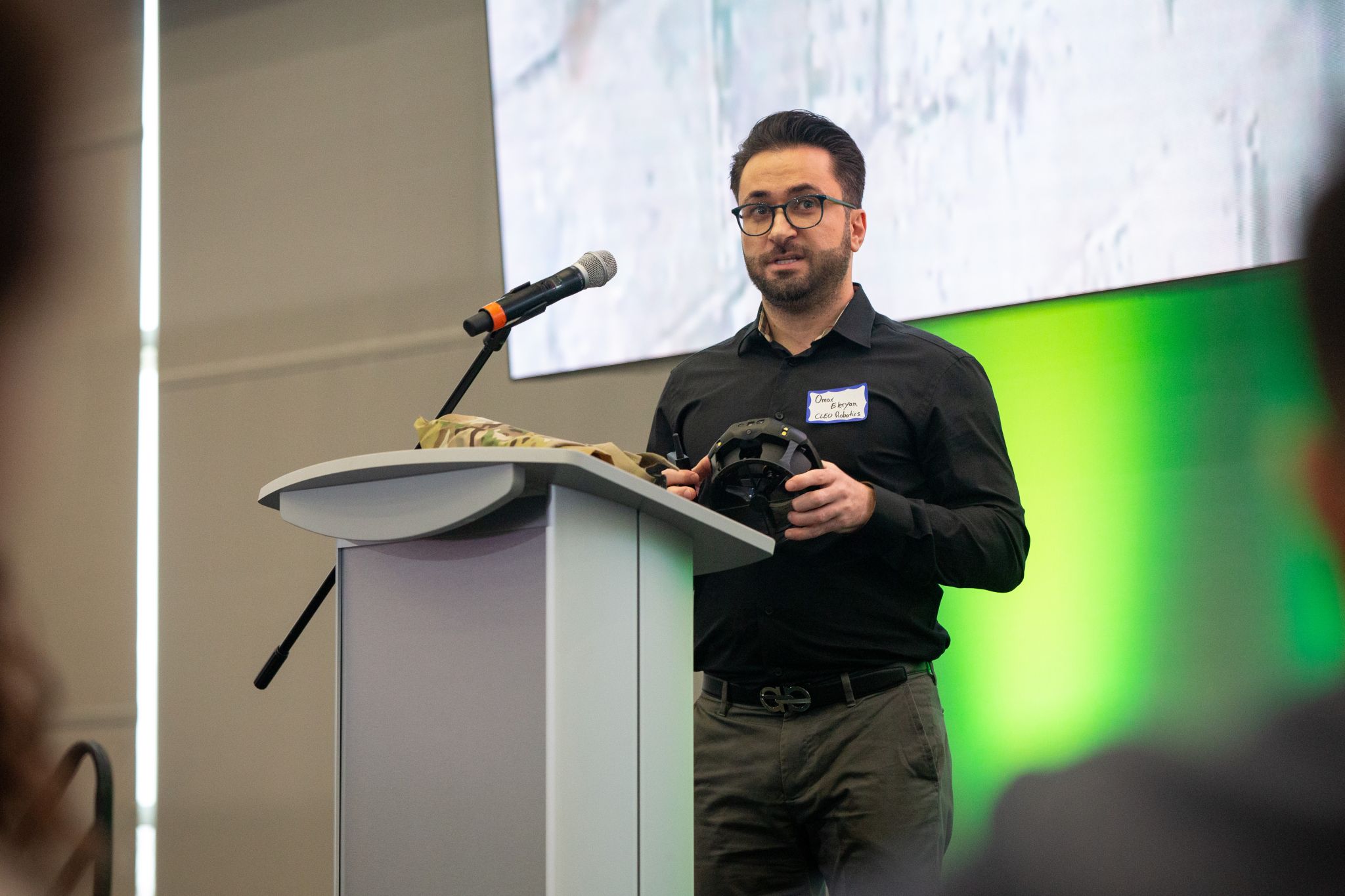This page has moved to the Defense Innovation Unit
You are being redirected to DIU.mil
This page has moved to the Defense Innovation Unit
You are being redirected to DIU.mil
We use cookies for analytics, to see our policy, please read our Privacy Policy.

Since completing the National Security Innovation Network (NSIN) Propel Boston accelerator six months ago, the 12-company cohort has collectively secured more than $22 million in either non-dilutive funding or private capital, along with numerous government contracts and awards.


Cyvl.ai enables the DoD to improve readiness by enabling quick, automated infrastructure monitoring with ready-to-deploy sensors and artificial intelligence (AI)-powered mapping. The company raised $6 million in private funding led by Companyon Ventures, with participation from Argon Ventures, AeroX Ventures, and Alumni Ventures.
Atolla Tech improves the speed with which the DoD can detect and classify small-unmanned aerial systems (sUAS). The venture provides a light detection and ranging (LiDAR)-based sensing system that quickly detects and classifies objects in flight. The company was recently awarded an Activate Fellowship and won the Army xTechSearch competition.
Mesodyne gives servicemembers better access to electricity in austere environments by enabling portable, efficient, quiet, and reliable power generation. Their novel generator can convert various fuel types into electricity via light. The company won the Renewable Energy Generation and Storage Category at SXSW. The company won a $1.9 million Army XTechPrime contract and has a second contract pending with US Special Operations Command (USSOCOM), and won a Tactical Funding Increase (TACFI) from Air Force Special Operations Command (AFSOC) that provides them with additional resources to help bridge the gap between Phase II and Phase III Small Business Innovation Research (SBIR) grants.
TeraDAR improves operator effectiveness with its perception sensors designed to ease radio frequency silicon and system integration challenges. The technology helps improve collaboration and communication across mission planning, logistics, training, and operations. The company won a $1.9 million Direct to Phase II (DP2) SBIR XTechPrime contract.
Non-Von helps service members to work with AI tools more efficiently by improving the interface between algorithms and hardware. The system reduces computing costs and improves performance by allowing many independent processing streams instead of a single memory unit. The firm has received feedback on their first-gen chip, which is the first milestone toward orders-of-magnitude increase in power efficiency for AI.
“We are incredibly proud to witness the success that these companies and that all the alumni of NSIN programming continue to find,” said Abigail Desjardins, Director of NSIN’s Venture Portfolio and Defense Innovation Unit (DIU)’s Global Partnerships. “NSIN Propel Boston and our associated programs provide these innovators with additional tools, resources, and insights to ensure their brilliant technologies can aid in national security and assist the warfighter.”
The startups selected for NSIN Propel Boston leveraged the program to share their commercial technologies with military leaders and explore potential national security use cases. Specifically, the cohort explored how their solutions might benefit the United States Special Operations Command (USSOCOM), the Special Operations Forces Acquisition, Technology, and Logistics (SOF AT&L), and the Directorate of Science and Technology (S&T), who worked alongside NSIN to deliver the programming.
During the accelerator, the ventures partnered with military and private sector leaders to learn how to enter and scale within the federal market. Teams received new connections to DoD organizations, academia, and venture capital firms, gained new insights into government contracting, and discovered new perspectives through customer interviews and sessions with subject matter experts.
“NSIN was easily the best access we got, specifically to SOCOM, [the program] brought in the exact right people that we needed to see,” said Matthew Ellis, the Product Development and Business Strategy Lead at Mesodyne. “They have introduced us to the best personnel so far in any of our accelerators.”
Daniel Pelaez, CEO of Cyvil.ai added, “We have known from day one that there was always potential for dual use. This was a great introduction to meet a lot of folks [in defense] and build that network. (…) We are looking forward to growing these relationships and finding huge ways that we can drive value with our solutions.”
NSIN hosted a final Propel Boston Demo Day on December 1, 2023, where the cohort of 12 early-stage ventures showcased cutting-edge capabilities that enable SOF readiness for integrated deterrence, crisis and conflict.
To create your own Propel success story, apply for NSIN Propel Hawaii here until June 21, 2024.
About National Security Innovation Network
NSIN is a program office in the U.S. Department of Defense, nested within the Defense Innovation Unit (DIU). We are set up to collaborate with a wide variety of innovators to include universities, researchers, students, entrepreneurs and start-ups. We create opportunities for collaboration across communities and connect those that might not traditionally work in national security. Together, we help drive national security innovation and develop technologies that directly support the individuals responsible for protecting our country.
For more information or interview requests with Team NSIN, please contact us at media@nsin.mil.
Your browser is old and unsupported. You may still use the site, but functionality will be limited and you may see errors. Please consider updating your browser.